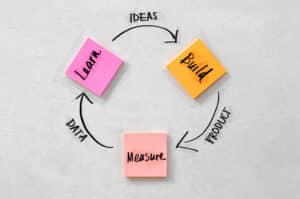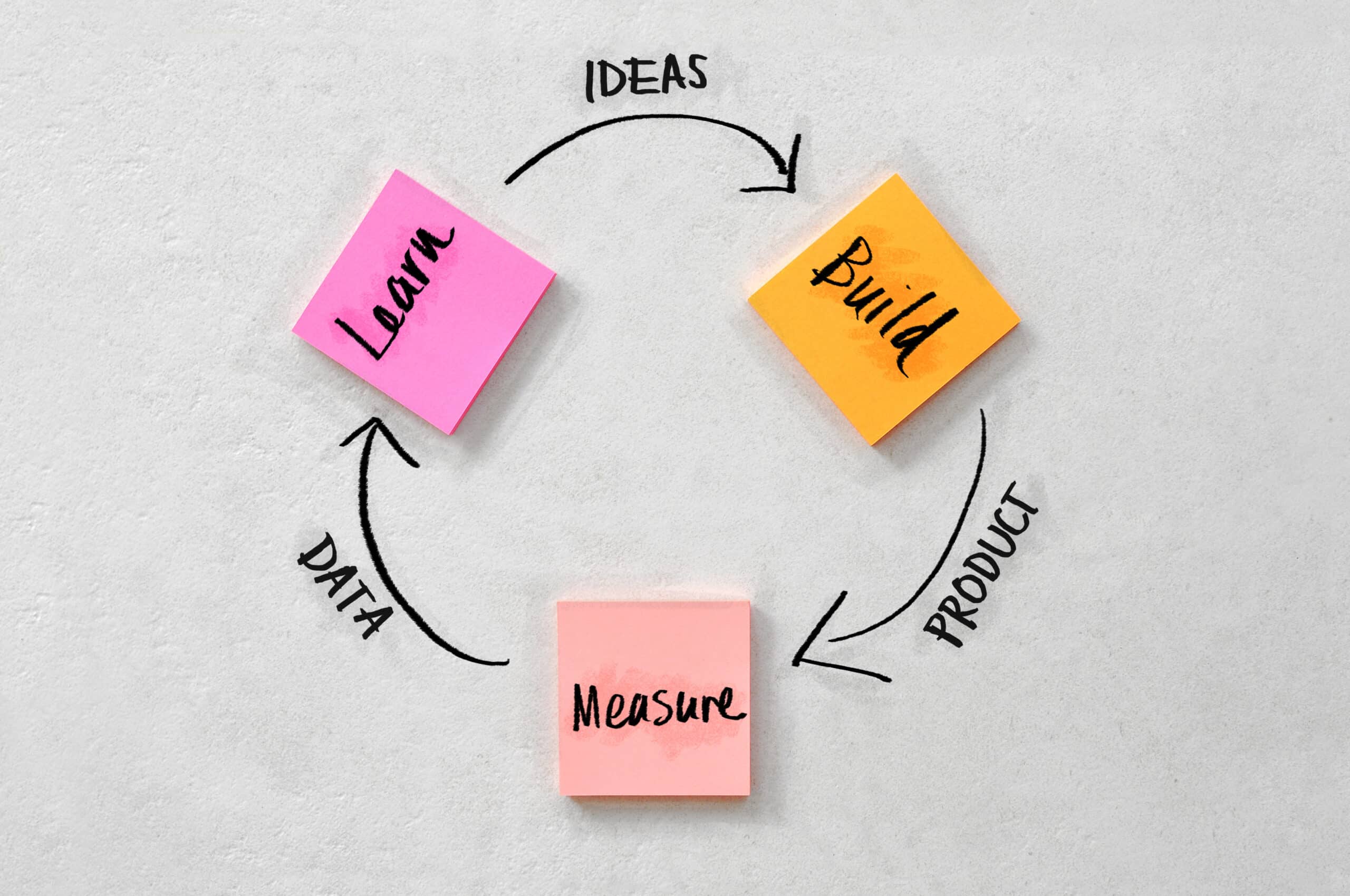Are you looking to start your own business? Do you currently run a business and want more from it? Running a business can be an exciting and rewarding experience. But it can also be daunting, given all the elements that need to come together for the venture to succeed. Fortunately, there are resources available that can help guide entrepreneurs through each step of the process. In this blog post, we’ll explore how to develop a successful business with tips on creating a business plan, researching markets and potential investors, developing marketing strategies and more. Keep reading for a comprehensive overview of what it takes to launch a successful enterprise!
Business Development Strategy
Business development is an essential part of launching and running a successful business. It involves researching, planning, and implementing activities that increase a business’s visibility, profitability, and sustainability.
Business development can encompass a wide range of activities, such as developing new products or services, increasing market share, entering new markets, creating strategic partnerships with other businesses, and more.
It’s important to have a clear understanding of the marketplace before diving into business development activities and having an effective plan that outlines how you will achieve your goals.
One example of a business development strategy is to create strategic partnerships with other businesses. This type of collaboration can help increase the business’s visibility, profitability, and sustainability by leveraging each partner’s resources and strengths.
For example, if one business specialises in marketing and another specialises in product development, they might form an agreement whereby the marketing business promotes the product developed by the other.
Business Development Strategies & A Businesses Lifecycle
The lifecycle of a business is an essential factor to consider when developing business strategies. A business’s lifecycle describes the stages that businesses go through from start-up to maturity, and each stage has its own unique challenges and opportunities for growth.
Businesses must create different business development strategies for each stage of their lifecycle to remain competitive.
For example, businesses in the start-up stage will often focus on marketing and building customer relationships. In contrast, businesses that are more established may focus on increasing profitability or expanding into new markets. Businesses should also consider their current resources when developing strategies; for instance, a business with limited financial resources is probably better off focusing on bootstrapping activities rather than pursuing venture capital investments.
Business Development Tools & Resources
Fortunately, there are tools and resources available that can help entrepreneurs navigate the process of developing a successful business. Business owners should take advantage of these resources to ensure that their strategies are well-informed and effective.
Business Development tools could include online courses on business development, templates for creating business plans and financial projections, access to market research data and customer surveys, and even coaching from experienced entrepreneurs. Taking advantage of these tools can help entrepreneurs determine the best strategies to pursue to achieve their long-term goals.
Business Development Strategy vs Business Tactics
Business development strategy and tactics are two distinct yet related concepts. While they both have the same overarching goal of increasing a business’s visibility, profitability, and sustainability, there are important differences between them that should be understood.
A business development strategy is more comprehensive and involves researching and planning activities that will help increase the business’s visibility, profitability and sustainability. A business development tactic is more specific and focuses on a single activity that is part of the larger strategy. For example, if your overall business development strategy is to increase market share, one possible tactic might be launching an advertising campaign in a particular geographic area.
Company’s Reputation
Business development is essential to any small business’s success, and one of the most important aspects of this process is building a positive business reputation. A well-developed reputation can help to attract new customers, build trust with existing ones, increase profits, and enhance the overall appeal of the business.
Developing and maintaining a positive image for your small businesses involves various activities, such as crafting an effective marketing strategy, engaging in public relations and social media outreach, and creating customer service policies that ensure quality experiences. Business owners should also consider how their actions can shape the perception of their business; if customers feel like they are being treated fairly and with respect, it will create a more positive image of the business in the public eye.
Competitive Advantage
Business development is key to creating and maintaining a competitive advantage in the competitive world of business. Businesses must always be looking for ways to stay ahead of their competitors, and one of the best ways to do this is through proactive business development strategies. Businesses can develop strategies that keep them ahead by analysing the industry landscape and identifying emerging market trends. By staying informed and taking advantage of the available tools and resources, businesses can ensure that they make the best decisions for their future success.
Business Development Team
Hiring experienced business developers who can help drive business growth is also essential. Business developers are professionals knowledgeable in a wide range of areas, such as marketing, finance, operations, and strategy. They can help develop a comprehensive business plan that outlines the business’s objectives, create strategies for positioning and promotion, identify potential markets and customers, research competitors, and more. Having experienced business developers on your team is invaluable for ensuring that your business remains competitive and profitable.
The Business Developer – It’s a Team Effort
Business developers are an essential part of the success of any business. As mentioned above, they are responsible for researching and creating strategies to help the business grow and reach its goals. A Business developer can be either the business owner or designated employees working in focused areas to help with business development.
Encouraging employees to brainstorm innovative ideas is an excellent way for businesses to stay ahead of the competition. A Business developer can play a crucial role in helping teams generate creative solutions and come up with out-of-the-box ideas.
To do this, a business developer should strive to create an open, collaborative work environment that encourages open dialogue and innovation.
Business Development Skills
People who form the development team need various business development skills to succeed in their roles. To begin with, business developers need to have strong analytical and research skills. They must be able to assess the marketplace and identify opportunities for business growth within their respective industries. Business development skills such as research also come in handy when developing a new product or service or researching competitors.
Additionally, business development teams need effective communication skills to explain their strategies and objectives to other departments. Finally, they must have excellent problem-solving and negotiation skills to meet the business goals.
Business Development Teams – SMART Goals
Business development teams play a key role in developing SMART (Specific, Measurable, Achievable, Relevant and Time-bound) goals for a business. The SMART system is a great tool for business development goals. Setting measurable and achievable goals is essential for driving the business forward and maintaining sustainability. Business developers can use their research and knowledge to develop objectives tailored to the business’s particular goals and resources.
Business Development Representatives
Business development representatives (BDR) are crucial to any successful business. They work closely with nearly all the departments within a business, from product development to marketing and operations, to search for opportunities to drive business growth. Business development representatives focus on researching potential clients and customers and identifying new markets and strategies to maximise sales and profits.
Skills of a BDR
Having the necessary business development skills and experience is essential for any successful BDRs. By having a thorough understanding of the marketplace, as well as strong analytical and research skills, BDRs can identify potential clients and opportunities that can drive business growth. Additionally, effective communication skills are needed to explain strategies and objectives to other departments effectively, and excellent problem-solving and negotiation skills are essential for achieving desired results.
Defining Your Business Idea
The first step in developing a successful business is to define your overall business idea. This means having a clear vision of what your business does and how you plan to make it profitable. Start by asking yourself questions such as: What is the purpose of my business? Who are my customers? What makes my product or service unique? Taking the time to flesh out and define your business idea is essential for attracting potential investors, customers, and partners.
New Business Development Ideas
New business development can push a business out of its comfort zone by allowing them to try things it would never have considered attempting before. It will enable businesses to take risks, think outside the box and explore new ideas that might not have been part of their original business plan.
Business developers help businesses expand and reach audiences they may not have considered. With changing markets, technologies and consumer preferences, businesses must be willing to adapt their strategies and be open to new ideas.
New Business Development Ideas
An example of a new business development idea for taking an existing business outside its comfort zone could be to expand its product range. This can be done by studying the current marketplace and customer trends and researching competitor offerings to identify any gaps in the market that can be filled with the introduction of a new product line. For example, a new business development idea for a business that sells sports equipment could introduce a new range of products specifically targeting a particular audience or sport.
Connecting To Find Growth Opportunities
Social media networks can be a powerful tool for businesses to find new growth opportunities. Connecting with customers, finding potential partners and expanding their reach are all benefits of active social media engagement. Social media networks allow businesses to humanise their brand, build customer relationships, demonstrate expertise and create meaningful connections with other users.
Businesses can also partner with other businesses to create new opportunities that benefit both parties. By leveraging each other’s strengths and resources, businesses can combine their expertise and networks to reach a wider audience and generate more leads.
Creating a Business Plan
Once you have your business concept outlined, it’s time to create a comprehensive action plan. A well-crafted business plan serves as the roadmap to success by setting goals and outlining how to reach those objectives. Business plans should include details about the business’s structure, finances, target market and how you plan to distinguish yourself from competitors. Additionally, your business plan will need to be updated regularly as your business evolves. These components should be closely examined in order to develop a comprehensive plan that will help guide the business from start-up through maturity.
Business Development Plan – Your Customers
Creating a business development plan should always take into account who the business’s ideal prospects are. Knowing who these customers and potential partners are, as well as understanding their needs and the challenges they face, is essential for developing an effective business development plan. These needs should be clearly outlined so that strategies can be designed to meet them effectively. This research can also reveal potential markets and investors for the business and help entrepreneurs understand their competition.
Researching Markets and Potential Investors
Conducting market and investor research is a key component of business development. Market research helps entrepreneurs to understand their customer base and identify potential growth opportunities. It can also provide insight into the competition as well as emerging trends in the industry. On the other hand, researching potential investors is important for accessing the funds necessary for launching and growing the business. Entrepreneurs should take the time to understand an investor’s expectations and interests and determine if their goals align with that of the business.
Sales Strategy
Business development and sales go hand-in-hand with growing a successful business. While business development focuses on identifying new opportunities, sales are the essential process of turning these opportunities into tangible results. Without an effective sales plan, businesses may be unable to capitalise on the potential they have identified through their business development strategy.
Business Development Team x Sales Team
The primary purpose of business development is to identify and capitalise on new opportunities to increase sales, profits, and market share. This process involves researching potential markets, products, services, competitors, customers, and potential partners to identify potential areas of business growth. Business developers then use this information to devise strategies to maximise the value derived from these opportunities.
Business Development Representatives x Marketing Team
Business development representatives can work closely with the marketing team to identify potential opportunities and maximise sales. The marketing team is essential for researching target markets, competitors, and customers to develop effective strategies for creating value from identified opportunities. Furthermore, business developers and the marketing team can collaborate on the best approaches to generating leads through email outreach or social media advertising campaigns. Ultimately, a successful collaboration between the two teams will ensure that businesses continue to grow and succeed.
Developing Marketing Strategies
Marketing is essential for any business, regardless of size or product offering. Entrepreneurs should consider what channels are best for reaching their target audience. Once the platform is chosen, it’s important to craft messages that accurately reflect the business’s goals and mission. In addition, business owners should develop strategies for tracking the performance of their campaigns in order to adjust messaging as needed.
Marketing Teams Role
Business development is vital to any successful business, as it helps identify and create opportunities that marketing teams can use to their best advantage. Business developers do this by conducting market research to gain a better understanding of their customer base and competitors, researching potential investors for securing funding, and creating comprehensive business plans with detailed strategies and objectives. Additionally, they develop marketing plans that align with the business’s mission and goals.
Marketing Budget
Business developers often utilise marketing budgets to create strategies and initiatives to increase their business’s sales, profits, and market share. These initiatives may include launching campaigns through various platforms such as social media or email outreach, engaging in branding activities, setting up events or promotions to generate leads, and more. To be successful with these initiatives, business developers and the marketing team must collaborate to devise a comprehensive strategy.
Setting Up Operations & Infrastructure
Once your marketing strategy is in place, the next step is to set up the operational and infrastructure aspects of the business. Business owners should consider factors such as staffing, location, inventory management, customer service and technology needs. Additionally, it’s important for entrepreneurs to keep up with industry trends and ensure that their operations are up to date with the latest technology and tools. Business developers can also help entrepreneurs plan their operational strategy and ensure that all aspects of the business are properly aligned for success.
How People Make Things Happen
Successful business development requires a foundation of strong relationships in order to achieve success. Having good relationships with potential customers, investors and partners are essential for creating opportunities and maximising the value derived from them. Building strong relationships involves developing trust and understanding between parties, which can lead to mutually beneficial partnerships and mutually beneficial agreements.
Everyone Needs to Work Together
Successful business development has a significant impact on every department within a business, from sales and marketing to operations and infrastructure. Business development involves leveraging existing resources and creating new opportunities to increase profits, and market share, and reach more potential customers. To accomplish this, each department must work together using their business development skills.
Finding Funding Sources & Investors
Finding funding sources and investors is a crucial part of business development. Without the necessary capital, launching and growing any business can be nearly impossible. Fortunately, there are many potential sources of financing that entrepreneurs can turn to when seeking to fund their endeavours.
A common method of financing is through venture capitalists or angel investors. These individuals typically invest in promising business ideas and provide the necessary capital to get them off the ground. Other sources of funding include banks, government grants and crowdfunding campaigns.
Previous Business Development Strategies
Reviewing previous business development strategies can provide insight into the costs & resources needed for success. Business developers should analyse the strategies used by other successful businesses in their industry and apply those lessons to their own business plans. This can help them identify areas of improvement and ensure that they’re making informed decisions when it comes to creating & executing strategies.
Finalising Operations
The final step in developing a successful business is to set up operational processes. This includes establishing systems for managing finances, HR and customer service, as well as creating protocols for daily operations. Taking the time to formalise these processes can save time in the long run by providing structure and efficiency. It also ensures that customers feel supported and respected throughout their journey with your business.
Measuring Success
Accurately tracking business development activity is essential for understanding the progress of any business. Without tracking, it can be difficult to determine if a strategy or initiative has been successful or not. Tracking also helps businesses identify potential problems and make changes quickly in order to improve results.
Business development tracking involves collecting data related to operational processes, customer interactions, marketing activities and sales. This information can then be used to analyse performance and benchmark success against industry standards.
Key performance indicators (KPIs) are a critical part of evaluating the success of any business development strategy. KPIs help organisations measure and monitor their progress towards achieving strategic goals, while also providing insights into areas where improvement is needed. A few examples of KPIs that can be used to measure a business’s development include customer satisfaction, sales growth, customer retention and return on investment (ROI).
Launching Your Business Successfully
Launching a business successfully can be a daunting and exciting task, but it involves a great deal of planning, research and hard work. Business development is an important part of the process that involves finding the best strategies to bring your product or service to market and create a successful, profitable venture.
Let’s Get Started
Starting a business can be daunting and overwhelming, but it doesn’t have to be. We understand the importance of having the necessary resources and support to launch and grow a successful venture. We specialise in providing business development services that can help entrepreneurs get their ideas off the ground.
We believe that launching a successful business should be an exciting and fulfilling experience — not a stressful one. Contact us today to learn more about how we can help you make your business dreams a reality.
FAQ
Q: What is business development?
A: Business development is the process of creating and implementing strategies to grow a business. It involves researching new opportunities, finding funding sources & investors, setting up operations and creating marketing campaigns.
Q: How do I find investors for my business?
A: There are many potential sources of financing that entrepreneurs can turn to when seeking to fund their endeavors, including venture capitalists and angel investors, banks, government grants, and crowdfunding campaigns.
Q: How do I make sure my business is successful?
A: To ensure that your business is successful, you should research the market thoroughly, create a comprehensive business plan, set up operational processes and make sure you have the necessary capital to get your business off the ground. Additionally, keep up with trends in the industry and make sure that all aspects of your business are properly aligned for success.
Q: How can Business Developers help me launch my business?
A: We specialise in providing business development services that can help entrepreneurs get their ideas off the ground. We believe that launching a successful business should be an exciting and fulfilling experience — not a stressful one. Contact us today to learn more about how we can help you make your business dreams a reality.


























